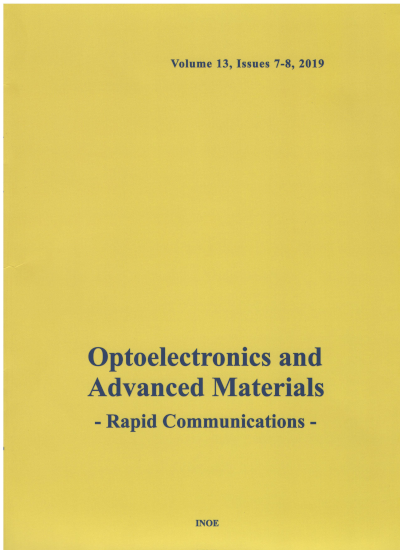Abstract
Zinc Bismuth Sulfide (ZnBi2S3) thin films are successfully deposited on a glass substrate by chemical bath deposition technique at different bath temperatures (60°C, 70°C, 80°C). The basic chemical bath contains bismuth nitrate, zinc nitrate and sodium thiosulphate as chemical reagents. The deposited films are characterized by XRD, FESEM, EDAX, UV Spectroscopy and PL for structural, morphological and optical properties. The formation of ZnBi2S3 is evidenced by the peaks in X-ray diffraction pattern. FESEM observation indicates the spherical grain shape of films at different temperatures. EDAX confirms the composition of ZnBi2S3. The bandgap energy obtained for deposited films is in the order of 2.31eV and depends on the film thickness. The PL spectrum reveals the green emission in the visible region.The Present work indicates the feasibility of ZnBi2S3 as a solar material..
Keywords
Thinfilms, Chemical bath deposition, Ternary compounds, Semiconductors, Bandgap, Solar energy material.
Citation
R. SABARISH, N. SURIYANARAYANAN, Chemically grown Zinc Bismuth Sulfide (ZnBi2S3) thin films for optoelectronic applications, Optoelectronics and Advanced Materials - Rapid Communications, 12, 1-2, January-February 2018, pp.90-94 (2018).
Submitted at: July 4, 2016
Accepted at: Feb. 12, 2018
